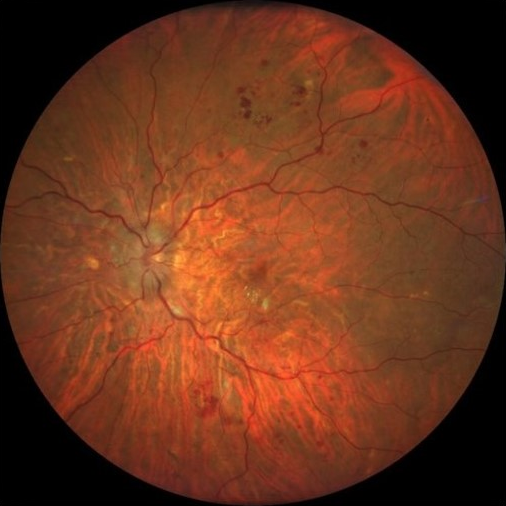Hypertensive Retinopathy

Hypertension is the medical term used to describe high blood pressure (BP). You may not realise that it can have an impact on sight.
Hypertension has been identified as one of the greatest public health risks in the UK. It may surprise you to learn that over 14 million adults in the UK have high blood pressure. It is important to diagnose because it is thought to contribute to over half of all heart attacks and stroke cases in the UK. Not only that, but sufferers of uncontrolled high blood pressure are at a greater risk of developing eye problems such as glaucoma (primary open-angle glaucoma) and hypertensive retinopathy, where the retina at the back of the eye is affected by mini ‘vascular accidents’ in the eye.
How is it diagnosed?
Rather like diabetic retinopathy, hypertensive retinopathy can lead to sight loss. Ocular stroke, is when a retinal blood vessel becomes blocked, therefore, obstructing the blood flow within the retina. Blocked retinal arteries and veins usually result in some degree of sight loss. Retinal vessel blockages can be identified by an optometrist or ophthalmologist when examining the back of the eye.
What are the treatments?
Hypertensive vessel changes will only occur in hypertensives. Poor diet, smoking, obesity and diabetes will increase the risk of circulation problems such as high blood pressure.
Most people do not know that they have high blood pressure, but one of the ways you can see the tell-tale signs is by having an eye examination at least every two years. That way, your optometrist will be able to track changes in your ocular health. Early signs of hypertension in the blood vessels can be detected, resulting in a referral to your GP who can intervene with medication or lifestyle changes to lower your risk.
If retinal vessels do become blocked, specialist hospital treatments are available to try and limit the damage caused.
Useful websites
- Moorfields Eye Hospital: Retinal vein occlusion
https://www.moorfields.nhs.uk/condition/retinal-vein-occlusion